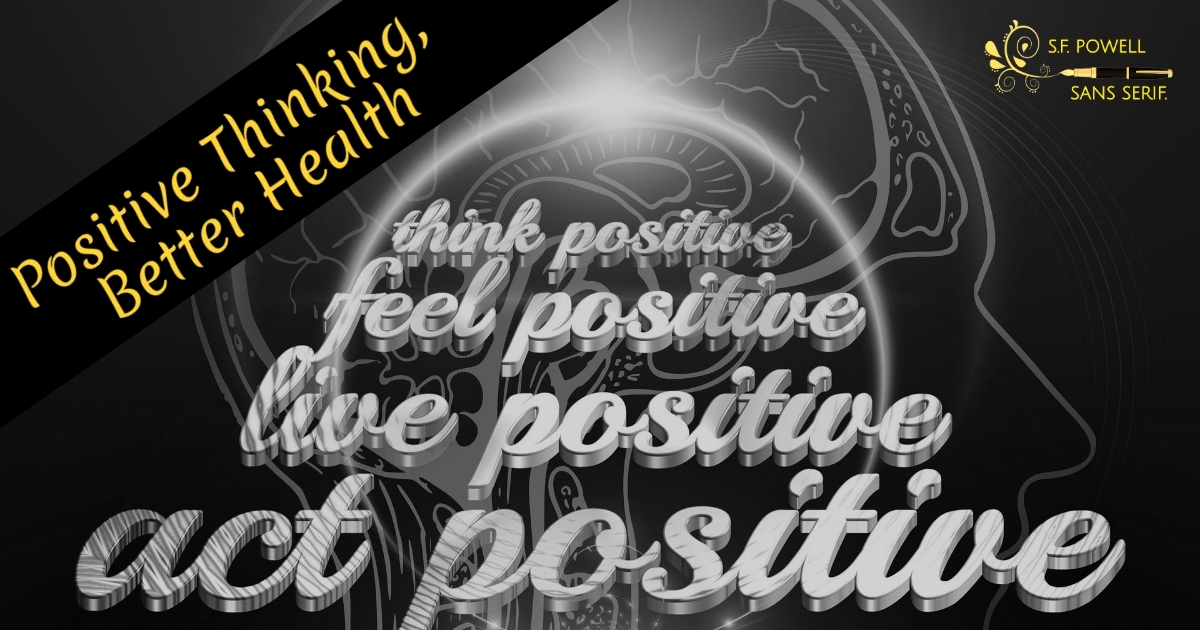May is Mental Health Awareness Month.
Life in a post-pandemic world. Political and economic upheaval. Environmental threats. Social injustice challenges. And then there’s just the everyday human, family living drama, which begins upon waking. Taken separately or compounded, these issues are enough to believe a growth of patients on psychiatrists’ couches inevitable—along with any corresponding increase in prescriptions to curb mental stress…
If not resolved, feeling sad or stressed for an extended period can lead to depression. But how does negative thinking impact one’s general health and well-being? Research has shown: positive thinking people tend to have fewer colds, live longer, and enjoy an overall state of good health. Okay then, “Research.”
Young Again
The correlation isn’t hard to understand. A connection exists between our emotions and our physical body. We’ve seen examples of this with anger raising blood pressure (not good), fear or sadness stimulating nausea (still not good), or happiness creating a sensation of euphoria in the brain and calming of the blood vessels (not drug induced, so, yay). For those who practice positive thinking daily, the immune system is heightened by increased levels of hormones designed to build resistance to common infections such as colds and the influenza virus.
When it comes to positive thinking, consider the adage “young at heart.” For senior citizens who’ve faithfully practiced destressing and maintained a positive outlook on life, despite physical signs of aging, inwardly, these seniors remain “young” and confident; their energy levels remain high. Even those faced with life-ending challenges still possess a powerfully sage and positive attitude.
Balancing the Flipside
Feeling in control of one’s life, handling circumstances with optimism in general, aids in making good choices in other areas of life. Those who feel relaxed, confident, and in control tend to eat better foods, exercise more, pursue constructive endeavors, and spend more time with family and friends. These activities contribute to good health and well-being, both mentally and physically. And then, there’s the flipside…
People who constantly think negatively about their circumstances tend to neglect their nutritional needs and don’t exercise regularly. They’re more focused on finding ways to escape feelings of sadness, stress, and depression. “Escape” takes form in habits like overeating or less-healthy eating (maybe both), vices like cigarettes, drugs, and alcohol—all of which tend to feed a vicious cycle with more negative thoughts.
Experiencing emotional well-being and balance through positive thinking doesn’t mean never feeling sad or upset. Nor does it mean thinking positively to the exclusion of addressing problems. What it means is using mental tactics to reduce stress and remaining positive despite life’s challenges. At the root of finding a silver lining is realizing that, while you are unique in all your “no two fingerprints” glory, many of your struggles in life aren’t unique. It’s been lived before, resolved before. People with life-threatening health problems have gone into remission or seen immediate improvement in their symptoms when they focus on the good in life outside their health problems.
A Learning Experience
There are plenty of books, videos, and apps with guidance and suggestions on applying the powers of positive thinking in everyday living. Research to find those methods most appealing and effective for you, your lifestyle.
Positive thinking isn’t a cure-all, isn’t a magic solution, but the practice does have its mental and physical benefits. It’s worth looking into: nothing beats a failure but a try. Emotional well-being is one of the most important gifts we can give ourselves. Performing regular emotional checkups, ensuring we do something to foster mental/emotional wellbeing, is essential to maintaining a healthy life.
Until next time, be serif, safe/well, and read on (a book of motivational prose, perhaps).
For more on my writing life, check out my newsletter, Tranquill at Twilight…






0 Comments